第77章
No wonder he wanted to keep his order safe where he could produce it if occasion required.Wood, irritated at the reprimand of Rosecrans earlier in the day, intent on maintaining his dignity, chose rather to undertake to carry out an order in the execution of which he felt safe, so long as he had it in writing and where he could produce it if occasion demanded it, than to suspend its execution long enough to ride a short distance to the rear, and find out just what the order meant; AND TO THIS EXTENT HE IS RESPONSIBLEfor the great disaster which swept the right wing of the Army of the Cumberland from the field of battle on the 20th.That Wood must have known that there was a mistake in regard to the order is plain, from the fact that he himself says that his troops had not been seriously engaged that morning.It was hardly possible that Reynolds's division, which was only a division front from his, could be so hardly pressed as to need supports, and that his division should "not be seriously engaged." In fact, when Wood undertook to carry out this order, he says he met Thomas and was told by him that Reynolds did not need supports, and that he, Wood, "had better move to the support of General Baird, posted on the extreme left, who needed assistance," showing that the conflict had as yet not reached down the line to Reynolds.The spirit in which General Wood fought the battle of Chickamauga is shown by the following extract from his official report, where, in speaking of Garfield's arrival on the battlefield later in the afternoon of the 20th, he says, "After the disastrous event of the right, General Garfield made his way back to the battlefield, showing thereby that the road was open to all who might choose to follow it where duty called."After Wood reported to Thomas there was no more splendid fighting done on that field of terrific conflict on the 20th than was done by Thomas J.Wood and his division.To the last he aided Thomas in holding Horseshoe Ridge, and was one of the last divisions to retire.
In the tide that swept down the Dry Valley road, Rosecrans was caught with the members of his staff.He breasted this for a while, and endeavored to join his left and centre under Thomas by a direct route.After riding along a short distance, under the heavy fire of the rebels with both artillery and musketry, he discovered that the road was effectually closed by the enemy in strong force.He then started over the ridge to the Dry Valley road, and made his way as rapidly as possible through the swarming masses of broken troops from the right of the battlefield to Rossville, with the intention of joining Thomas from that place down the La Fayette road if the left and centre were not also in rout, and on the road to Chattanooga.On reaching Rossville, Rosecrans and Garfield halted in the midst of the driving masses of teamsters, stragglers, and fugitives from Thomas's command, all striving in hot haste to be among the first to reach Chattanooga.Making inquiry of these men as to the condition of affairs at the front, they were informed "that the entire army was defeated, and in retreat to Chattanooga.""That Rosecrans and Thomas were both killed, and that McCook and Crittenden were prisoners." Asking a small detachment of troops the command they belonged to, Rosecrans was informed Negley's division.He then asked as to the whereabouts of Negley.He was informed that he was a short distance from Rossville, though some distance from the battlefield, "rallying stragglers," and that the entire division "was knocked all to pieces." Knowing that one of the last orders he had given on the battlefield was for Negley's division to report to Thomas to take position on his extreme left, Rosecrans was satisfied that if these soldiers reported truly the left and centre were routed and that the whole army as a broken mass would be back in Chattanooga very shortly.At this time there was a lull in the firing at the front.Dismounting from their horses, Rosecrans and Garfield placing their ears to the ground, endeavored to determine from the sound as it reached them the truth of the reported rout.Hearing no artillery firing, and detecting only what appeared to be a scattering fire of musketry, the conclusion was forced on Rosecrans that his army was entirely broken.His information prior to the battle led him to believe that the rebels outnumbered him two to one, and if this proved true, the disaster in part could be accounted for.Conferring with Garfield as to what was the best thing to be done under the circumstances, Garfield told him that if these reports were true that then his, Rosecrans's, place was in Chattanooga, where he could receive and reorganize, if possible, his army on its reaching that place.That he, of all persons, had more influence with the army, and if it was broken that his duty was to go to that place and make such disposition of the troops as might possibly save the army from complete destruction.
That he, Garfield, would ride to the front, try and find Thomas, if alive, and would report immediately to Rosecrans at Chattanooga as to the condition of affairs at the front.Unfortunately, this plan was carried out.The reverse of this should have been done.
Rosecrans should at once have gone to the front, and by his presence there aided, as he did at Stone's River, more than any other thing to retrieve the fortunes of the day, and pluck victory from disaster.Had Rosecrans gone to the front, and discovered from a personal observation the true condition of affairs, and the spirit and morale of the troops there, the chances are that he never would have ordered their retirement to Rossville the night of the 20th.That was the turning-point, and his hour had arrived.